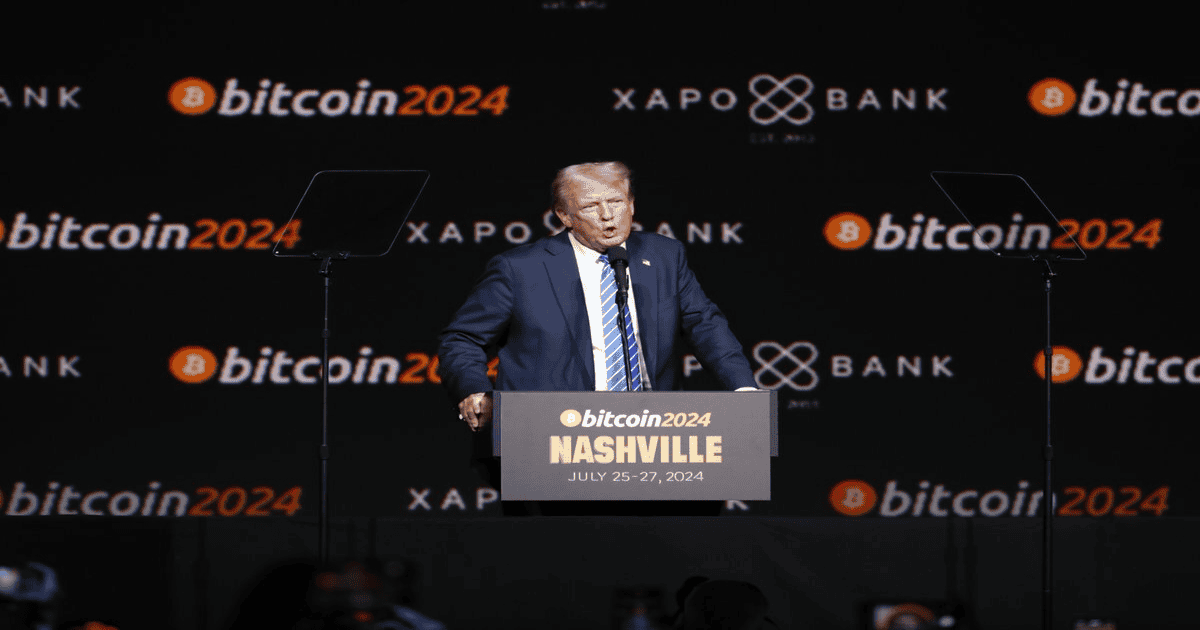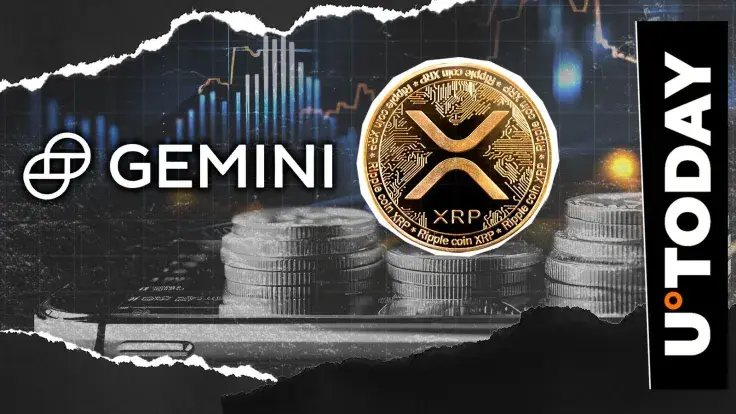Historic First: US Government Records GDP Data on Bitcoin Blockchain

The U.S. government, specifically the Commerce Department, has initiated the groundbreaking step of publishing gross domestic product (GDP) data on public blockchains. This move, announced on a Thursday, marks a significant integration of blockchain technology into America’s economic reporting infrastructure. The GDP data is now accessible on nine distinct networks, including prominent cryptocurrencies like Bitcoin, Ethereum, and Solana. This development was also confirmed by Bloomberg and highlighted by outlets such as Bitcoin Magazine.
Commerce officials clarified that this blockchain rollout is intended as an "another avenue" for data distribution rather than a replacement for traditional economic data releases. Despite this, the initiative carries profound symbolic weight, effectively granting government endorsement to a technology that was previously met with considerable skepticism in Washington. Mike Cahill, CEO of Douro Labs, who collaborated with the Commerce Department on this project for two months, stated, "With today’s announcement we are now in a world where government data lives on blockchains, and market participants can participate in real time."
The initiative involves the posting of cryptographic hashes of GDP data on these blockchains. These hashes act as digital fingerprints, ensuring the integrity and verifiability of the information. While the initial scope is limited, Commerce Department officials, according to Bloomberg, confirmed President Donald Trump’s administration's intent to expand the program further. Commerce Secretary Howard Lutnick, who spearheaded this project, reportedly informed President Trump earlier in the week that statistics would be issued via blockchain because of Trump's self-proclaimed status as the "crypto president." Lutnick has also previously advocated for a re-evaluation of GDP reporting by excluding the impact of government spending.
This move represents a stark divergence from the previous administration's approach. Under former President Joe Biden, regulators maintained a cautious stance on cryptocurrency, often engaging in disputes with exchanges and implementing restrictions on digital assets. In contrast, President Trump has rapidly integrated Bitcoin into government policy since assuming office. His administration has established a U.S. Bitcoin reserve, accumulated holdings of various digital coins like Ether and Solana, enacted legislation to regulate stablecoins, and appointed crypto-friendly regulators who subsequently halted enforcement actions against major exchanges like Coinbase. Furthermore, Trump’s family has expanded its involvement in the digital asset sector, supporting ventures such as World Liberty Financial.
The burgeoning political influence of the crypto industry is evident, with crypto firms making substantial donations to Trump’s reelection campaign and contributing over $133 million to super PACs supporting pro-crypto candidates in 2024, as reported by OpenSecrets.
The publishing of this data is notably powered by Chainlink, a prominent "oracle" provider, which facilitates the direct publication of data on blockchain networks. Chainlink described this collaboration as "a key milestone" for government adoption of blockchain technology. The LINK token saw a surge of over 6% following this announcement. Chainlink's technology is also utilized by major financial and technology entities, including SWIFT, BNY Mellon, BlackRock, Visa, and Mastercard.
This significant policy shift occurs amidst a period of robust economic performance. The U.S. economy unexpectedly expanded by 3.3% in the second quarter, with consumption growing by 1.6%. This marks the best quarter since Q3 2023, revised upwards from an initial 3% estimate. Economist Heather Long noted that while the economy is slowing, it "clearly" continues to grow. Despite this relatively strong economic data, the Federal Reserve is still widely anticipated to implement interest rate cuts next month.
By leveraging public blockchains for GDP distribution, the Commerce Department joins other agencies that are exploring crypto technology, such as the Department of Homeland Security's consideration of blockchain for airport passenger screening and California’s DMV digitizing car titles on crypto. As President Trump solidifies his image as the "crypto president," this adoption of blockchain technology for official economic data signals a profound transformation in U.S. economic policy, further cementing Bitcoin's position as a powerful political and financial force in Washington.
Recommended Articles
Saylor's Bitcoin Strategy Suffers S&P 500 Snub, Ignites Market Doubts

Michael Saylor's Strategy (MSTR) is under scrutiny as its Bitcoin-tied stock performance sees critical analysis and a no...
Saylor's Bitcoin Gambit Rocked: MicroStrategy Snubbed from S&P 500, Sparks Market Turmoil

Michael Saylor's Strategy (MSTR) faces close inspection amid its strong Bitcoin correlation and recent S&P 500 index rej...
Bitcoin Giant's S&P 500 Dream Crushed: MicroStrategy Rejection Sends Shockwaves

Michael Saylor's Strategy (MSTR) was rejected from the S&P 500 index despite outperforming it and Bitcoin. This decision...
MicroStrategy Faces S&P 500 Snub: Saylor Reacts to Index Exclusion

Strategy (MSTR), the Bitcoin treasury company led by Michael Saylor, was rejected from the S&P 500 index despite its str...
XRP's Dazzling Debut: New Billboard Electrifies Times Square

The cryptocurrency market is navigating a period of intense activity, marked by Gemini's aggressive advertising for its ...
You may also like...
7 Unsexy Habits That Make Creative Careers Actually Work
.jpeg)
Creativity isn’t built on sparks of genius alone. Read about 7 unsexy habits that sustain creative careers, from discipl...
Best Apps for Creatives: Tools That Handle the Boring Work for You

Discover the best apps for creatives in 2025, from Notion to Canva, that handle the boring tasks like invoices, editing,...
From Agbo to Antibiotics: Africa’s Tug of War Between Tradition and Modern Medicine

From Lagos bus stops to rural villages, Africans still choose between agbo and antibiotics. This article explores the co...
The Street is the Runway: Inside Africa’s Streetwear Revolution

Streetwear is rewriting Africa’s fashion story—from thrift markets to luxury brands, young Africans are turning sidewalk...
Trending But Not Important: The Power and Problem of Nigerian Blogs in Shaping Public Discourse

Nigerian blogs shape daily conversations, but their obsession with gist over governance raises questions about their inf...
Why Divorce Rates Are on the Rise Globally and What's Behind the Trend

Divorce is increasing in many parts of the world. This article investigates the surprising social, economic, and technol...
The Post-Pandemic Real Estate Market

The real estate market is undergoing a profound transformation. This article explores how technology, remote work, and d...
The Hidden Hand of External Influence in National Sovereignty

Beyond military power, how do economic, political, and cultural forces from external actors shape a country's destiny? T...